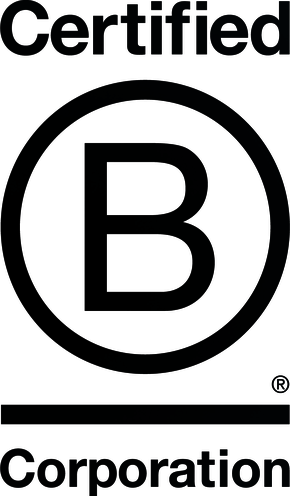What is Enterprise SEO?
SEO, or Search Engine Optimization, is the process of optimizing a website to enhance its visibility in the results of queries placed in search engines like Google. This process is crucial for attracting organic traffic and building a better online presence. Enterprise SEO takes this to a larger scale, applying these principles to the vast, complex websites of big organizations. SEO for enterprises differs from traditional SEO in its scope and the size of operations it handles. This approach faces unique challenges such as managing SEO across thousands of pages and aligning it with broader corporate strategies, but offers opportunities like dominating market segments and achieving substantial online authority. While successfully executing SEO for enterprise companies may seem daunting, the right digital marketing agency can help increase your online presence and establish your organization as the leading contender within your business sector.
What Does Enterprise SEO Mean?
So, what is enterprise SEO? The most common and easy to understand enterprise SEO definition is: The carefully planned execution of SEO techniques on large-scale websites of big organizations aimed at improving their overall visibility and performance across relevant searches in popular engines like Google. The overarching goal of enterprise seo management is to get your company’s web pages to rank first in Google’s search algorithm. In doing so, people searching for topics related to your services/products will associate your organization with expertise and authority, thus increasing website traffic and sales. Enterprise SEO differs from standard SEO practices in its scale and complexity, focusing on optimizing websites that have thousands of pages and ensuring consistency across various departments and regions. This is an important and necessary process for enterprises that want to support their overall marketing goals in an increasingly digital world.
Benefits of Enterprise SEO
The benefits of enterprise SEO optimization extend far beyond simple search engine rankings, offering significant advantages for large-scale businesses aiming to optimize their extensive digital presence. These strategic advantages are essential for large organizations seeking to maintain a dominant online presence and effectively engage with a broader audience:
Scalability and Flexibility
Enterprise SEO offers unparalleled scalability and flexibility, crucial for large organizations that face the challenge of optimizing extensive websites with diverse content and varying audience needs. It supports the efficient handling of vast amounts of content, from product pages to blog articles, ensuring all parts of your website contribute positively to overall search visibility. Additionally, Enterprise SEO allows your business to quickly adapt to dynamic market trends and search engine algorithm updates, ensuring that you remain competitive and responsive to the digital environment’s perpetually changing demands.
Improved User Experience
A main enterprise SEO solution is improving user experience. This is achieved by optimizing your website structure for clarity, improving page loading times for speed, ensuring mobile-friendliness for accessibility, and refining navigation for ease of use. These improvements not only make it easier for search engines to crawl and index content but also significantly enhance the user’s interaction with your site, leading to a more satisfying and engaging online experience. As a result, you will see a positive impact on conversion rates and customer satisfaction, as users are more likely to stay longer, engage more, and convert due to the enhanced usability and performance of your website.
Enhanced Brand Visibility
Enterprise SEO increases brand visibility by strategically targeting relevant keywords, optimizing critical on-page and off-page factors, and deploying effective content marketing strategies that resonate with the target audience. These concerted efforts not only boost immediate search engine rankings but also contribute to long-term brand recognition and authority, establishing the business as a leader in its industry. There’s no denying that internet searches have become the main source of information for most people in the world, so maintaining an authoritative digital presence can help ensure that your organization is trusted more than your competitors.
Challenges of Enterprise SEO
As expected, an SEO enterprise edition campaign is not an easy feat to successfully carry out. Implementing SEO strategies in large organizations often necessitates a tailored approach to navigate the intricacies of large-scale digital environments effectively. Thus, it is crucial to carefully execute these commonly challenging tasks:
Organizational Alignment
Aligning SEO goals with overall business objectives presents challenges due to the diverse priorities and understanding of SEO’s value across different stakeholders and departments within an organization. Gaining buy-in from key stakeholders requires demonstrating how SEO directly contributes to achieving broader business goals, which can be complex when dealing with stakeholders unfamiliar with SEO’s technical aspects. Effective strategies for overcoming these challenges include fostering open communication channels, using data-driven arguments to demonstrate SEO’s impact, and establishing cross-functional teams that include marketing, IT, and content departments to ensure a unified approach and shared understanding of SEO’s role in your organization’s success.
Resource Allocation
Allocating sufficient resources for Enterprise SEO is a significant challenge, as it requires a comprehensive budget, dedicated personnel, and advanced technology to effectively manage and optimize large-scale websites. Proper planning and prioritization are essential to justify the investment in SEO, demonstrating its long-term value to your business and ensuring that funds are directed towards strategies with the highest potential impact. Investing in the right SEO tools and technologies is crucial for automating tasks, gaining insightful analytics, and enhancing overall efficiency.
Scaling SEO Efforts
Scaling SEO efforts in an enterprise campaign poses challenges due to the sheer size of operations. Difficulties may arise with managing multiple websites, locations, or languages, which can dilute focus and complicate coordination. Strategies for effectively scaling include establishing centralized management to oversee the bigger picture of SEO efforts, implementing standardized processes to ensure consistency across different entities, and fostering effective collaboration among various teams. This approach ensures that SEO practices are uniform in their effectiveness, efficiencies are maximized, and your brand’s online presence is cohesive and powerful across all digital touchpoints.
Key Components of a Successful Enterprise SEO Strategy
There are numerous enterprise SEO blog posts detailing the cornerstones of a successful enterprise SEO strategy. Among other important factors, the general consensus within the SEO community is that an effective and efficient strategy must include:
- Comprehensive keyword research: Identifying high-value, relevant keywords tailored to different segments of a large and diverse target audience, and implementing these keywords in strategic places across site pages and content. This also includes staying up to date on keywords that other organizations within your business sector are ranking for, and incorporating these keywords in carefully crafted content to ensure that your organization stays ahead of the competition.
- Content strategy and optimization: Creating and optimizing high-quality, relevant content that addresses the needs of your target audience and adheres to SEO best practices.
- Technical SEO: Ensuring your website is technically sound, with a focus on site structure, mobile-friendliness, site speed, and crawlability.
- Local SEO: Optimizing for local search results. This is especially important if your business has a physical location or a regional customer base. Oftentimes with enterprise SEO, local SEO strategies will be utilized across multiple locations that your business is trying to target.
- On-page SEO: Optimizing individual web pages to rank higher and earn more relevant traffic in search engines through meta tags, headers, and structured data.
- Off-page SEO: Building your site’s authority through backlinks, social media strategies, and other external channels.
- International SEO: Similar to local SEO, but instead tailoring content and SEO strategies to different countries and languages for global organizations.
- Crisis and reputation management: Monitoring and managing your brand’s online reputation, including addressing negative search results and protecting brand integrity.
Top Tools and Technologies for Enterprise SEO in 2024

Advanced SEO tools and software are a game-changer for big businesses, packing everything you need like keyword research (Semrush), technical SEO audits, competitor analysis (Ahrefs), and performance tracking (Google Analytics) – all catered to the extensive scale and complexity of your large website. Thanks to AI and machine learning, the more complex processes like figuring out the best keywords, determining how to optimize your content, or predicting the next big industry trend are getting automated, making SEO smarter and not harder. Plus, when you combine these SEO tools with other digital marketing applications, like CRM systems like HubSpot, website builders like Elementor, and data trackers like GA4, everything works together seamlessly. This way, your SEO efforts are in sync with your bigger marketing goals, helping all areas of your enterprise website make a bigger impact online.
Measuring and Reporting on SEO Performance
Key Performance Indicators (KPIs) are the data and information that enterprises use to measure the success of their SEO strategies, make informed decisions, and optimize their online presence for better performance and results. Some of the main KPIs include:
- Organic Traffic Volume: The number of visitors coming to the website through search engine results, indicating overall visibility and reach.
- Keyword Rankings: Positions of the website’s targeted keywords in search engine results, reflecting visibility for specific searches.
- Conversion Rate from Organic Traffic: The percentage of visitors from organic search who take a desired action on the site, showing the effectiveness of SEO in driving valuable traffic.
- Click-Through Rate (CTR): The ratio of users who click on a specific link to the number of total users who view the search engine page, indicating the appeal of the title and description in the search results.
- Backlink Quantity and Quality: The number and credibility of external sites linking back to the website, which can affect the site’s authority and search rankings.
- Page Loading Speed: How quickly web pages load for users, impacting user experience and potentially search rankings.
- Bounce Rate: The percentage of visitors who navigate away from the site after viewing only one page, indicating the relevance and quality of the landing page content.
- Time on Site: The average duration visitors spend on the website, which can reflect the quality and engagement of the website content.
- Pages per Session: The average number of pages a user visits in one session, demonstrating the site’s ability to engage and retain visitors.
- Organic Click-Through Rate by Ranking Position: Analysis of how click-through rates vary depending on the position of listings in search results, providing insights into the value of different ranking positions.
- SERP Visibility: The share of impressions a website gets in search engine result pages for targeted keywords, reflecting the brand’s visibility in search results.
- Mobile Traffic and Performance: The volume and behavior of users accessing the site from mobile devices, along with how well the site performs on mobile platforms.
Tools like Google Analytics, SEMrush, and Ahrefs are critical for tracking and analyzing these KPIs, providing insights into website performance and user behavior. Reports compiled on these insights will help highlight achievements and areas for improvement, and demonstrate how SEO efforts align with broader business objectives, thereby facilitating informed decision-making and strategic planning.
How to Succeed in Enterprise SEO in 2024.
When it comes to optimizing your large-scale website, choosing the right partner can make all the difference. NextLeft stands out as the go-to choice for Enterprise SEO, offering a unique blend of competitive rates, a tight-knit team, unparalleled support, reliability, and a proven track record of success. At NextLeft we understand the importance of maximizing your SEO investments. Our team is our greatest asset, and we collectively believe in going the extra mile for our clients. Choosing NextLeft for your Enterprise SEO needs means partnering with a team that is as invested in your success as you are.
Enterprise SEO is a dynamic, ongoing process essential for large organizations that want to stay relevant in an increasingly digital world. It requires continuous adaptation and improvement in response to evolving search engine algorithms and market trends. Finding the right agency to handle your enterprise SEO needs is a crucial step in securing your business’s online presence. NextLeft is the trusted and proven choice for any SEO endeavor your enterprise is interested in pursuing. Contact us today to learn more about how we can help you stay in the game and ahead of competitors.


